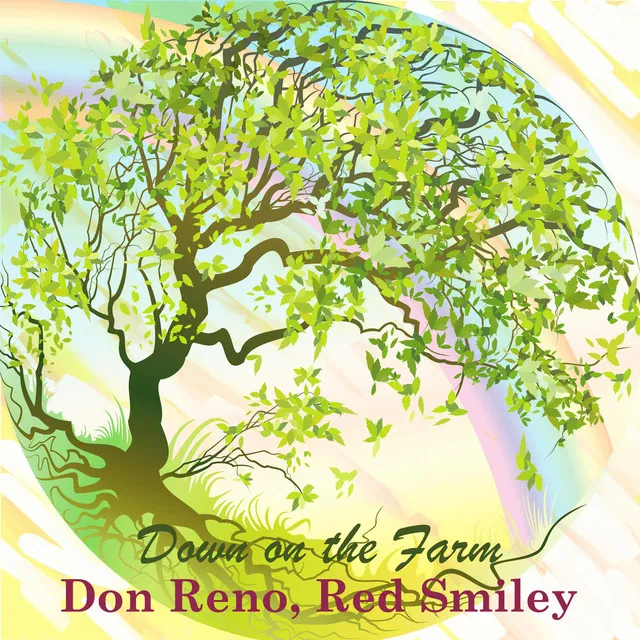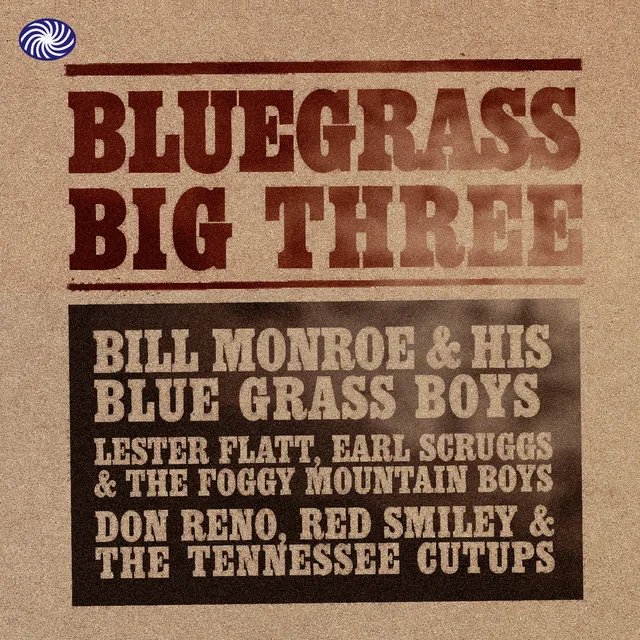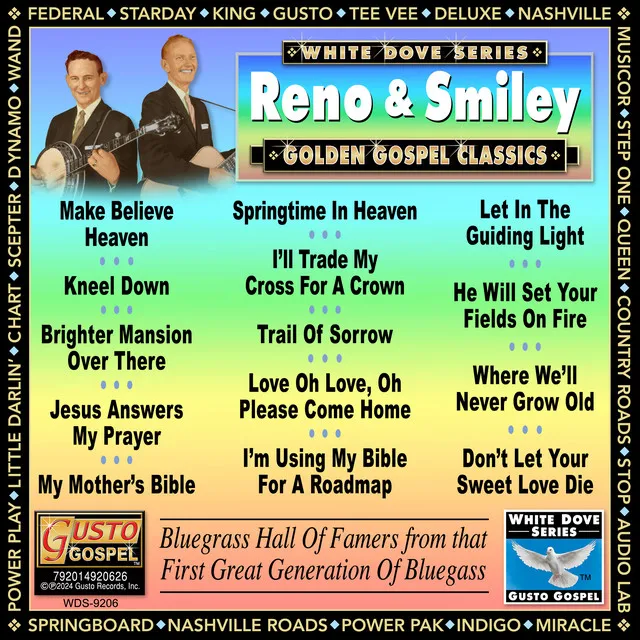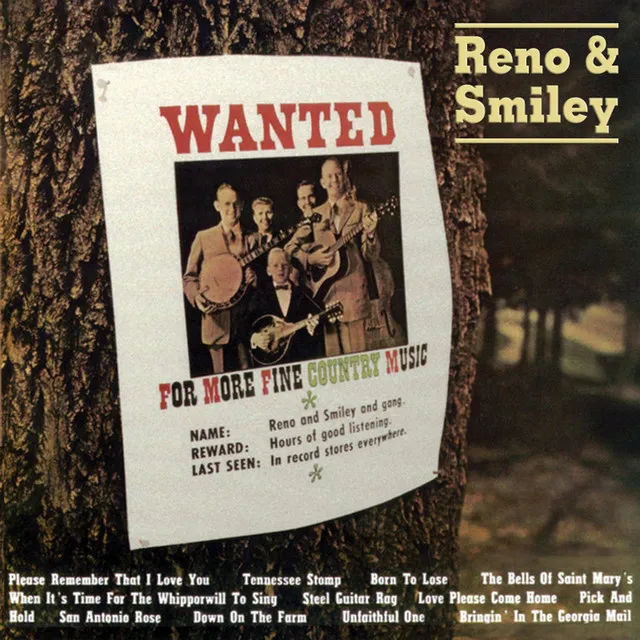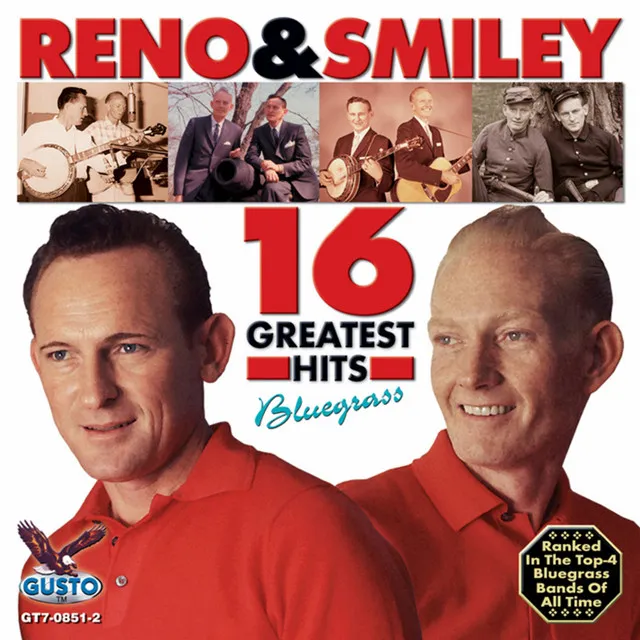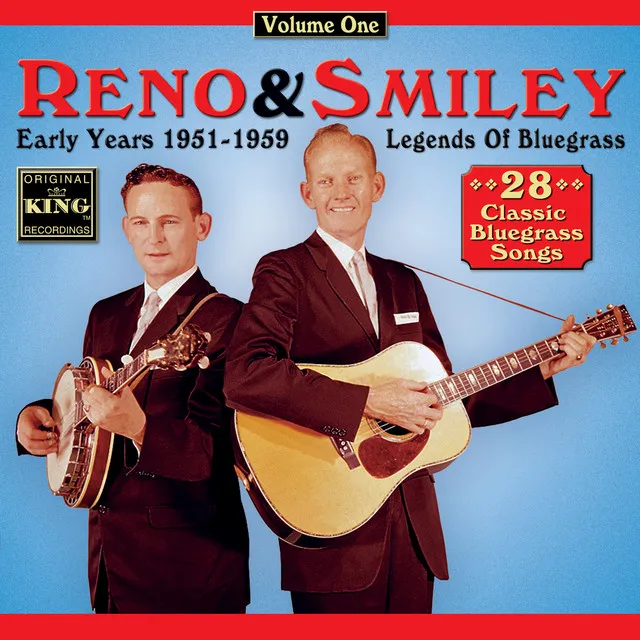Don Reno, Red Smiley, and the Tennessee Cut-Ups were a bluegrass band of such high quality that they gave serious competition to Flatt & Scruggs in the '50s. Reno, an unsurpassed master of the banjo, played for Bill Monroe in 1948, replacing Earl Scruggs. With a smooth and mellow baritone, Smiley made a perfect partner to Reno, singing lead to his high harmony part. Reno's incredible talent carried over to guitar playing and songwriting. Among his compositions are the exquisite "Emotions" as well as "Feuding Banjos," the unforgettable song in the film Deliverance, co-written with Arthur "Guitar Boogie" Smith. You don't know the five-string banjo if you haven't heard Reno.
Reno and Smiley both grew up in different rural sections of North Carolina and both played with the Morris Brothers at different times in their formative early years. After both men served in separate divisions of the Army during World War II, and after they were discharged they played in a variety of country bands -- Reno even did a stint with Monroe after Scruggs left the Blue Grass Boys in 1948 -- before they met each other in December 1949. Both musicians were recruited by fiddler Tommy Magness to play in his band the Tennessee Buddies. In the summer of 1950, the pair began playing duets together. After cutting a few singles with Magness for King Records (which were eventually released on Federal) in the spring of 1951, they left the fiddler and began working with Toby Stroud's Blue Mountain Boys in Roanoke, VA. In the fall of that year, the pair finally formed their own band, the Tennessee Cut-Ups.
Initially, Reno & Smiley found it difficult to land jobs in Virginia and South Carolina. Nevertheless, they cut several sides for King early in 1952. Before those singles were issued, the duo had already split up, simply because they couldn't find work. Once the records did appear, they sold fairly well, and King's owner, Syd Nathan, convinced the duo to continue recording, even if they weren't actively performing. For the next three years, they made assorted records for King while Reno played with Arthur "Guitar Boogie" Smith and Smiley worked as a mechanic. On the first batch of recordings, they were supported by musicians like Jimmy Lunsford and Tommy Faile. By November 1954, they were allowed to use their longtime backing musicians, fiddler Mack Magaha and bassist John Palmer.
In the spring of 1955, Reno & Smiley reunited as a performing duo and soon landed a regular gig on WRVA's Old Dominion Barn Dance. Within a year, they were secured a daily morning television show in Roanoke as well as various shows for a station in Harrisonburg, VA. The pair made a handful of recordings for Dot in 1957, but they continued their relationship with King until 1964, recording a wealth of material.
At the end of 1964, Reno & Smiley parted ways. Smiley had been slowly suffering from diabetes and no longer wanted to travel; consequently, he continued to do the television show in Roanoke, but only occasionally toured. By spring 1968, he had completely retired. Reno played with a few bands before teaming up with Bill Harrell in 1966 -- Harrell would be his first true partner since Smiley, but he wouldn't be his last. For nearly two decades, Reno remained active in the bluegrass community, cutting numerous records and playing with a variety of collaborators. ~ Stephen Thomas Erlewine & David Vinopal, Rovi
